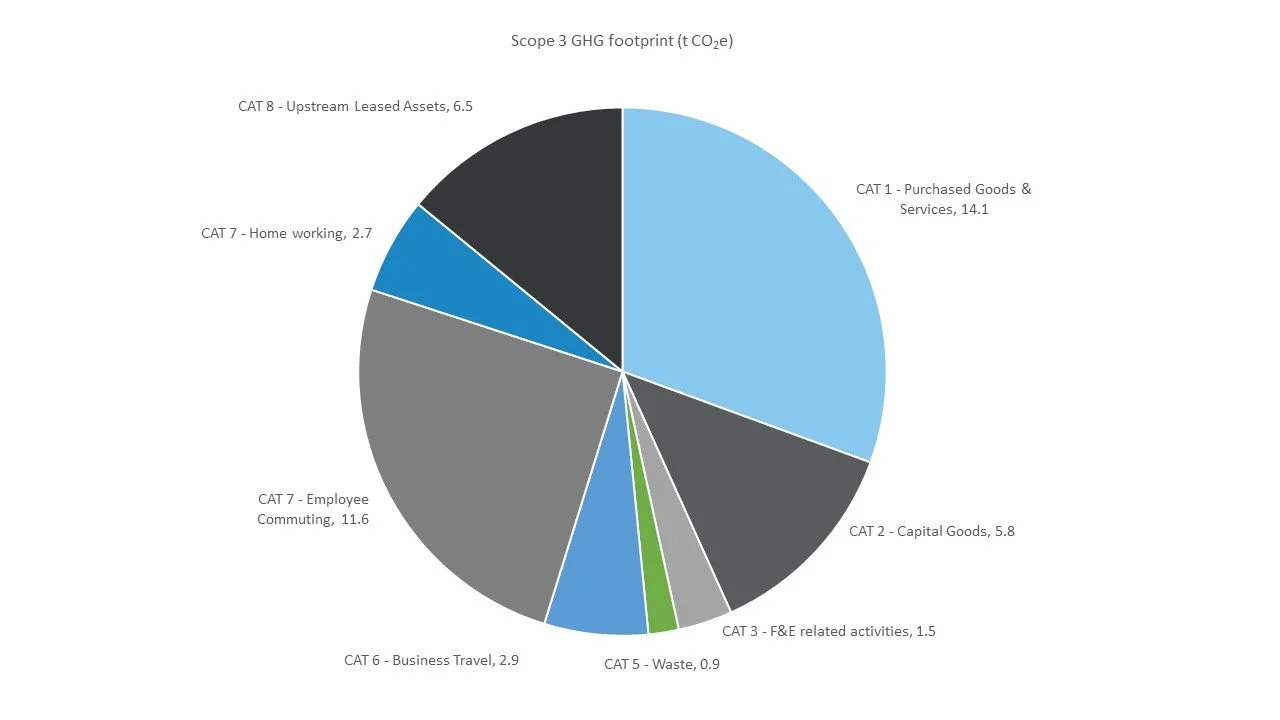Announcement on SBTi targets
Motivated by our desire to demonstrate leadership to our clients and to ‘walk the talk’ of moderating climate change through sustainability and the circular economy, we at Oakdene Hollins have decided to monitor and report our own carbon emissions and will be setting ourselves science-based targets to reduce our own carbon footprint.
We will be aligning with SBTi’s definition of Net-Zero: “Reducing Scope 1, 2 and 3 emissions to zero or to a residual level that is consistent with reaching net-zero emissions at the global or sector level in eligible 1.5°C pathways, neutralising any residual emissions at the net-zero target year and any GHG emissions released into the atmosphere thereafter.”
Our current Scope 1 & 2 emissions – These only make up 12.5% of our total emissions. Use of gas generates taking up most of our Scope 1 & 2 emissions with 65%, followed by electricity at 33%, with fugitive emissions (leaks or other irregular releases of gas) ~2%.
Our current Scope 3 emissions – These currently combine to 46 tCO2e with CAT 1 (Purchased Goods & Services) and CAT 7 (Employee Commuting and Home Working) making up around 60% of total emissions. Note that CAT 4 in Scope 3 (Upstream Transportation & Distribution) does not apply to us.
Employee Commuting (CAT 7) is a particular focus area for Oakdene Hollins because it has a substantial impact on our total emissions, and because car travel has a much greater effect than alternative modes of transport (e.g. per mile, car travel results in almost five times more carbon emissions than train travel). Some of the initiatives we are considering include:
· an official cycle to work scheme
· a salary sacrifice scheme for electric vehicles (EVs) (e.g. through Octopus EV who specialise in making electric cars cost-neutral for companies),
· new installations such as showers, bike sheds and EV chargers to encourage cleaner commuting
· and where possible, to provide incentives for staff to switch their commute from cars to public transport.
Near-term target - Between 2021 and 2030, we intend to reduce these emissions by 38%, with an annual decline of 4.2%. This can be done by considerably reducing our gas and electricity usage, as well as ensuring that these fuels come from low-emission sources.
As with the planned initiatives for Scope 3 Employee Commuting, Oakdene Hollins is continually assessing the possibilities for carbon reduction initiatives in other Categories and Scopes. As mentioned previously, we intend to reduce our gas and electricity usage in Scope 1, as well as purchase renewable energy certificates. Our Scope 3 initiatives will cover multiple categories, and include developing an in-house sustainable procurement policy/practice that can help cut our emissions in CAT 1 (Purchased Goods & Services) and CAT 2 (Capital Goods), the aforementioned CAT 7 (Employee Commuting) initiatives and, for CAT 6 (Business Travel), we will cut emissions by minimising business travel and prioritising events where remote attendance is available.



